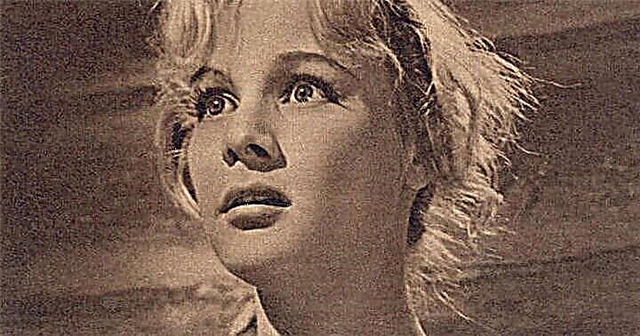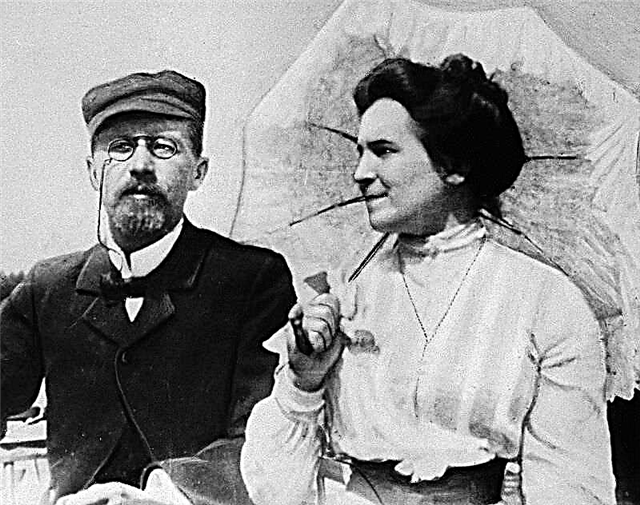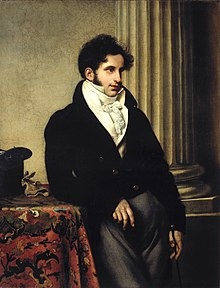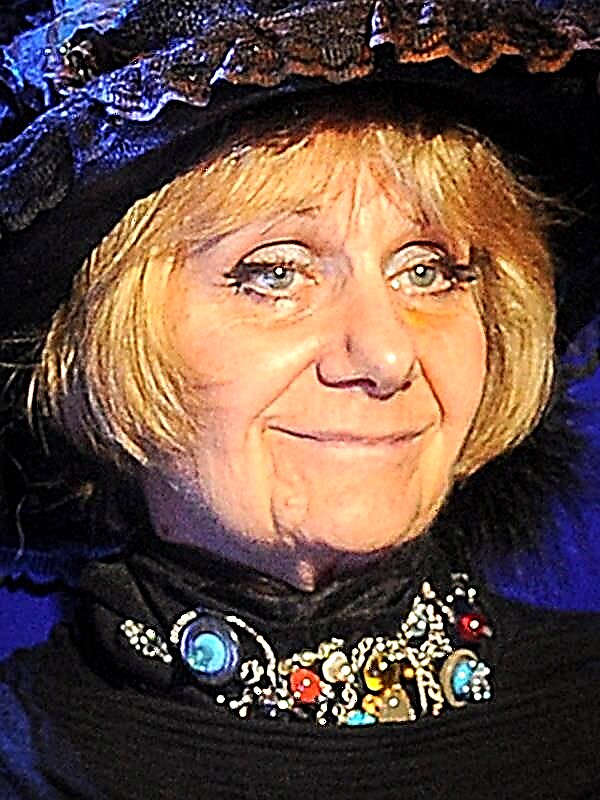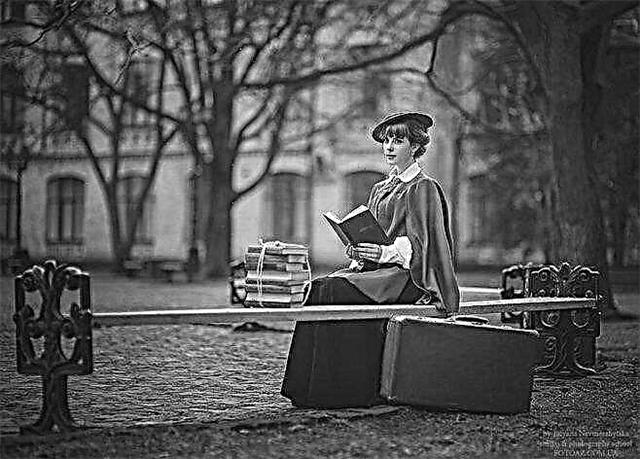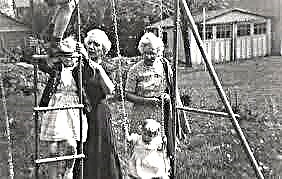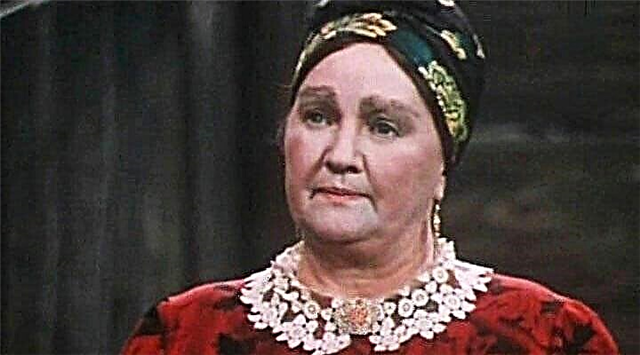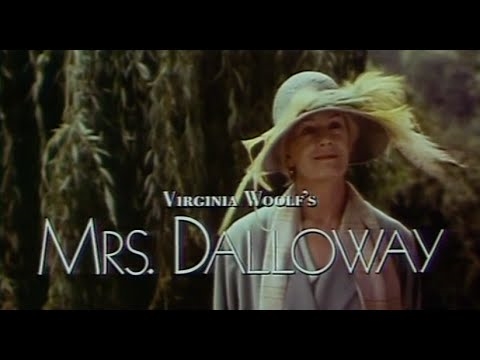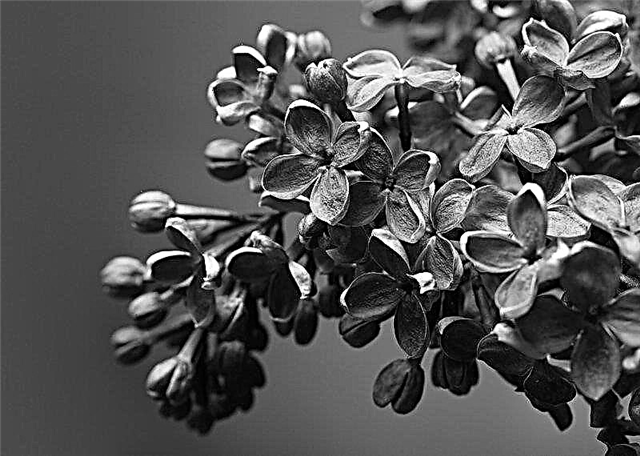The novel tells of a day on June 16, 1904 from the life of a Dublin Jew, thirty-eight years old, Leopold Bloom and twenty-two-year-old Stephen Dedalus.
The three parts of a huge book, divided into eighteen episodes, should, according to the author, relate to the Homeric Odyssey (Ulysses is a Latin transcription of the name of its protagonist). But this connection with the ancient Greek epic is very relative and, rather, from the opposite: in the lengthy novel, nothing important, in fact, happens.
The scene - the capital of Ireland, the city of Dublin - was verified by the author literally on a map and a directory. Time - according to the chronometer, sometimes, however, stopping.
The first part includes three episodes. At eight in the morning, Bull Mulligan, who rents a house with Martell in the tower with Daedalus, wakes up his friend, who is extremely unhappy that their third neighbor, Haines, raving at night, shot from a dream with a gun. The cowardly and touchy Daedalus doesn't really like it. His mother recently died from liver cancer, with whom he was in a difficult relationship with her during her lifetime, and he is offended by the wit Mulligan for disrespectful expressions towards her. Their conversation revolves around the topic of the search for the son of his father, constantly touching on the examples of Hamlet, Jesus Christ and Telemachus, son of Ulysses. The same topic arises in the history lesson, which Steven gives two hours later at the school where he works part-time, and in his conversation with the school principal asking the young man to tell his acquaintances in the newspaper’s editorial office his long-running note on the epidemic of foot and mouth disease. After the lesson, Stephen mentally walks along the seashore.
On the same morning, the “wanderings” of the small advertising agent Leopold Bloom begin. The central and largest part of the novel, consisting of twelve episodes, begins with his breakfast - the pig’s kidney, which he buys before that at the Dlugach’s butcher’s shop. Two letters await him at home. The first is from the daughter of Millie, or Merion, who just turned fifteen yesterday and who is already working as an assistant photographer in Mollingar. And the second letter addressed to his wife Molly, a concert singer, from her impresario Buyan (or Hugh E.) Boylan, in which he reports that he will call at her at four in the afternoon.
After breakfast - visit to the toilet with a magazine in hand. At eleven, Bloom needs to be at the funeral of his schoolmate, and he leaves the house an hour before to do various small things. In particular, he receives a letter by mail from a certain Martha Clifford, who responded to a newspaper’s search for a secretary given by him for purely amorous purposes. Martha answered his love message and even writes that she dreams of meeting. About what Bloom has all sorts of feminine fantasies. It is time, however, in the cemetery.
In the funeral carriage, Bloom rides along with other condolences, including Stephen's father, Simon Daedalus. We are talking about all kinds of things, including the future tour of Bloom’s wife, and his father, who committed suicide in his time. After the funeral ceremony, Bloom goes to the newspaper, for which he advertises as an agent. There he meets the same company that was in the cemetery, plus Professor McHugh, consumptive lawyer O’Molla and editor Miles Crawford. Bloom leaves, comes. In his absence, the editorial board is Steven Daedalus, who brought the note of the school principal, and after the crowd invites everyone to a pub. The editor lingered, Bloom returned at that time, and all the irritation of Crawford fell on him.
Confused, Bloom leaves the editorial office and wanders around the city, gradually beginning to feel hunger and more and more thinking about food.Either he exchanges a word with a friend, then marvels at the madman, and finally goes to Davy Burn's inn, where one of the regulars tells the owner of the inn about Bloom's Freemasonry.
At two o'clock in the afternoon, Stephen Daedalus defends his version of Shakespeare’s biography and personality in the library in front of the smartest people in Dublin, for example, the fact that he played and considered himself the shadow of Hamlet’s father. Despite the originality and desire to be understood, he still remains an outcast among the audience: neither his poems are published in the collection of young poets, nor are he invited to the evening, unlike his friend Mailayha (or Bull) Mulligan, who is also here. And already insulted, Stephen gets new reasons for his insults. Bloom also visits the library, almost meeting Steven.
Midday, and the townspeople go about their business. Bloom's friends discuss the delights of his wife, Leopold Bloom himself goes over the masochistic books, choosing one of them. Buyan Boylan sends wine and fruit to a messenger at a certain address. Stephen meets his sister, recently parted with his father.
Bloom knows from a letter that a meeting is scheduled for four of his wife, Molly, with Buyan Boylan. He suspects their love affair, which actually exists. Having met Boylan, Bloom secretly follows him to the Ormond restaurant on the waterfront, by the way, dines there with his acquaintance, listens to music, then finds out that Boylan leaves in a stroller. Jealousy, the secret desire of his wife’s betrayal with another man, this “Penelope”, satisfying everyone, to her and their pleasure - all this overwhelms Bloom’s soul against the backdrop of exciting music. Imagining what is happening at his house in his absence, he writes a response letter to Martha, refusing to immediately meet her and enjoying the game itself, which delights pleasure. At five o'clock, Irish patriots gather in Barney Kearnan's pub, discussing current affairs - their own and their poor, oppressed English and Jewish country. In search of Martin Cannigem about the insurance of Dignam buried in the morning, Bloom also looks here. Drinking, the patriots debate, hitting the Jew Bloom, who does not support their extremism against the British, in particular. The case ends with an anti-Semitic trick addressed to him: when Bloom gets into the carriage, he is thrown into an empty can.
By eight o’clock, Bloom is on the beach by the sea, where he masturbates, watching one of three young girlfriends, Gertie MacDowell, who, feeling his interest, as if accidentally demonstrates her underwear and other secret charms. When she leaves with her friends, Bloom discovers her limp. Then it turns out that his watch stopped at half past five. Is it then, Bloom thinks, when Boylan “patched up” his wife?
Bloom has no desire to meet his wife. At ten in the evening he finds himself in a shelter for mothers of Dr. Horn, where one of the mothers having many children has not been able to resolve the next baby for the third day. Upon entering, Bloom discovers a company of drinking and laughing young men, among whom is Stephen Daedalus. Leopold drinks and talks to them. It is worth noting that the novel "Ulysses" is not easy to read and retell, because it is written in the genre of the stream of consciousness. In the same chapter, the author also imitates various literary styles, starting with the oldest and ending with the most modern. Among the youths, the Bull Mulligan is also verbiage. Seductive conversations are fueled by the arrival of a nurse who reports that the lady has finally given birth. The fun company sets off to drink and walk further into the tavern, and Stephen and his friend Lynch separate from the rest to go to Bella Cohen's brothel. For some reason, Bloom, feeling sympathy for Stephen, decides to follow the young people.
At midnight he finds himself in the very heart of Dublin’s night debauchery. Drunk Bloom hallucinates when he sees his parents, women friends, random people met during the day.He is forced to defend himself against the accusations of these ghosts in various secret abominations. His subconscious, a thirst for power and honors, fears, sexual masochism, stick out "in faces and pictures." Finally he finds himself with a prostitute Zoe in a brothel, where he meets Stephen with his friend. Drunken drug-erotic delirium continues, reality cannot be separated from consciousness. Bloom, converted into a woman, is accused of all sorts of perversions, including the pleasure of spying on the adultery of his wife with Boylan. Suddenly, in the midst of an orgy, Stephen sees the ghost of his poor mother rising from the grave. He smashes the chandelier with a cane and runs from the brothel to the street, where he enters into a fight with soldiers. Bloom, following him, somehow settles the scandal, bends over the body of a young man lying in the dust and recognizes in him his deceased eleven years ago in the infancy of his son Rudy.
The third part of the book, consisting of the last three episodes, begins. At one o’clock in the morning, Bloom and Stephen get to the cabman’s night shelter, where they sit in the corner. Bloom in every possible way maintains a conversation that periodically comes to a standstill, shows Stephen a photograph of his wife and invites guests to introduce her. Having discussed on the way many important issues for drunk people, they get to Bloom’s house in two nights and, having hardly opened it, sit in the kitchen, drink cocoa and again talk on various topics, then go to the garden, urinate together, and then disperse safely in different directions.
Lying down with his wife in bed, Bloom, among other things, reflects on his wife’s infidelity with a series of lovers supposed by him, talks to her a little and finally falls asleep.
The novel ends with forty-page punctuation-free outpourings of Mrs. Molly Bloom about her boyfriends, about her husband, about intimate preferences, along the way, she discovers that she begins menstruation, which, however, does not interfere with all her seductive thoughts, as a result of which a huge romance ends with the words: “so that he felt my breasts and their aroma and his heart was beating madly and yes I said yes I want Yes.”


